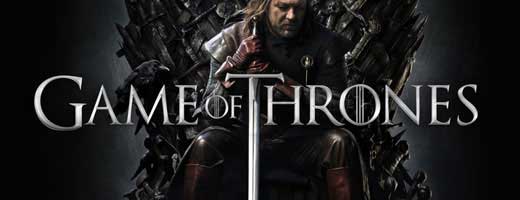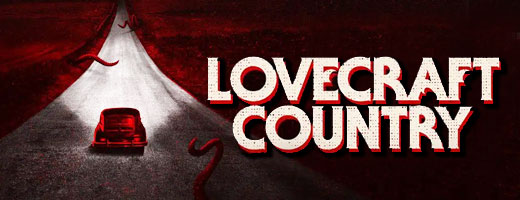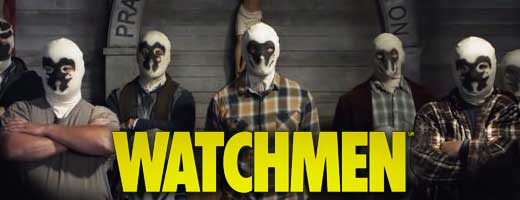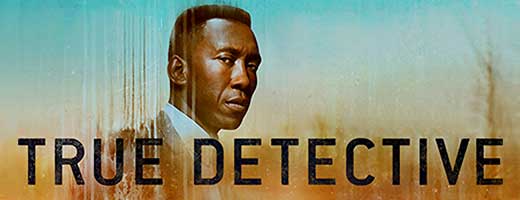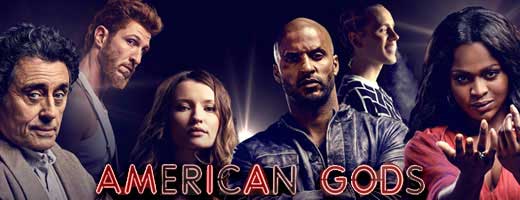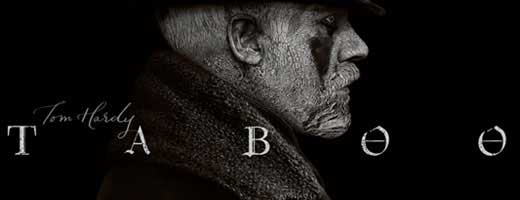True Detective Ep 3

Have a Theory? Share It Now!
So, I thought this was a really interesting episode. I was actually fascinated by the last twenty minutes. There is a complex and interesting narrative being written here, and I wanted to throw out some ideas I’ve had this week that were confirmed somewhat tonight.
To start, Amelia and Wayne have a conversation about the last line of the poem we talked about last week. As a refresher, the poem talks about not being able to name time… or call it by its name. When asked by Wayne what this means, Amelia says, “You separate yourself from something when you name it, and we can’t be separated from time.” Now, sure, this sounds good. It’s true, etc, but I think this is the obvious reading of the poem’s intent. Instead, I find Wayne’s response so much more interesting (and most likely more relevant to the show). He says he thought the poem was talking about time in the same way that the Hebrews talked about God, or more specifically, that they weren’t allowed to say the name of God out loud. Man was not considered to be worthy to call his name, as they were not on the same plane as him, the same level of holiness. Instead, whenever Jews see the word Yahweh (their name for God), they replace it when reading out loud with another name that basically translates to Lord.
So the idea here is that the name can’t be named, for, if it is named, the sin (or the fact that we have sin) presents itself and makes us unworthy to say the name in the first place (or reinforces that concept, if you will). How can that apply to time? Well, if we take Wayne’s analysis to heart, we can hypothesize that we are not allowed to say time because of the sins we collect over a lifetime would become apparent in our recognition of time as a concept, and our lifetime, specifically. Thus, we don’t say time, but we call it something else, something Wayne and the show has talked about at length so far, memory. What is a better word to call time by than what defines that time for us, the memories we make along the way. And contained within those memories are lots of good, but, for the purposes of this show, are also the sins collected and regretted.
That is what is so dangerous about the situation with which Wayne finds himself with his dementia in 2015. When you are unsure of your memories, you are also unsure of your past, the markers of your time spent collecting those memories both good and bad. To that end, I know King Bee was urging to not read too much into cross-season connections, but I have to agree with Gene and say that we have to remember that, at the end of the day, this is an anthology. So, perhaps one of the connections between seasons one and three is the concept and idea of time. There is that famous monologue Rust gives in S1 about time, and what it looks like in terms of both experience and logic. For him, things aren’t linear, and the experience of Wayne’s so far is as non-linear as it gets. Rust claims that time is a flat circle, and this week Amelia (in ghost/hallucination form) poses the question of what if the past present and future are all just an illusion. Like Rust, I think this question presents the idea that life shouldn’t be thought about in terms of making our way from point A to point B, but, rather, the connections between all the points in between. That’s what memories do, right? When we reflect, we think about our lives at those times, at those moments. When we think about or plan for the future, we think about the end goal, where we want or hope to be. The journey either from or to either of these points is not what is specifically mapped out, only the past memory or the future hope is considered.
The show is presenting a similar structure for us. We have no idea what has happened over the years between 1980 to 1990 and again from 1990 to 2015. We don’t need those step by step moments in a straight line. Instead, we move in a circular motion between those three points in time to find the story, to discover what has happened and what is yet to come… again, time is a circle with no past, present and future, but only what we are seeing and experiencing in the now.
I will say in closing, one of the ways ancient cultures marked time was by the lunar cycle. Today, those that are faith healers and some religions continue to do the same, and it is a cycle that tracks time from one point to another, but these points are in a circle that constantly repeats itself. It cannot be a coincidence that from the credits to the opening shot at the crime scene being a full moon, that we are led to connect the lunar cycle with the greater overarching themes of this season. And, for what its worth, Wayne keeps saying there was a full moon the night of the murders. If it was the night Steve McQueen died, (11/7/1980), there actually was a new moon- the start of the lunar cycle. That is a much different point in time/moon, and I don’t think Pizzaloato and his crew would put that in there and not catch such an error. It has to be intentional. And I am looking forward to finding out what such an error means for the story and Wayne’s reliance as a narrator.
I’d be curious to know what you think of the above. Looking forward to another great episode this week.
-Ash Schlafly
Subscribe Now
- Android: https://shatontv.com/true-detective-android
- Apple/iTunes: https://shatontv.com/true-detective-itunes
Help Support the Podcast
- Support with Paypal – https://shatontv.com/paypal
- Support With Venmo – https://venmo.com/ShatPodcasts
- Shop / Merchandise: https://shatontv.com/shop
- Shop Amazon With Our Affiliate Link – https://www.amazon.com/?tag=shatmovies-20
- Sponsor’s Listener Survey – https://shatontv.com/survey
- Leave an iTunes Review – https://shatontv.com/true-detective-review
- Leave a Voicemail – (914) 719-SHAT – (914) 719-7428
- Feeds & Social Media – https://shatontv.com/subscribe-and-follow/
- Checkout our Movie Podcast – http://shatthemovies.com

